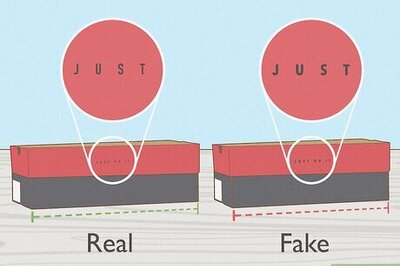
views
New Delhi: Senior officials of 16 countries, including India, China and Australia, which are negotiating mega free trade agreement RCEP will meet in Indonesia next week to iron out differences in areas such as goods and services, an official said.
The Regional Comprehensive Economic Partnership (RCEP) agreement is being negotiated by 10 Asean group members (Brunei, Cambodia, Indonesia, Malaysia, Myanmar, Singapore, Thailand, the Philippines, Laos and Vietnam) and India, China, Japan, South Korea, Australia and New Zealand.
"This will be an inter-sessional meeting before a formal round of talks. So far 27 rounds of talks have been held," the official said. The member countries are yet to arrive at a number of goods over which import duties will be eliminated or significantly reduced.
Similarly, talks on liberalising rules for trade of services, a key area of interest for India, too are moving slowly. Indian industry has raised concerns over the presence of China in the grouping with which India has a trade deficit of over USD 50 billion.
Sectors including dairy, metals, electronics, chemicals, and textiles have urged the government to not agree on duty cut in these segments. Amul, which contributes about 4 per cent to India's total dairy production, has sought exclusion of all dairy and dairy products from any liberalisation.
Australia and New Zealand are among the largest players in the dairy sector in the world.
"India is the largest producer and consumer of milk in the world. There are demands from several countries to open up the Indian dairy market so that they can export their surplus milk products at nil or lower import duties. This would have a detrimental effect on the Indian dairy industry which is a major source of livelihood and sustenance for our 10 crore milk producers," Amul MD R S Sodhi said.
India has told China that RCEP should address the causes of high trade imbalances among the member countries. RCEP covered 47.4 per cent of global population, 32.2 per cent of the global economy, 29.1 per cent of global trade, and 32.5 per cent of global investment flows in 2018.
India registered a trade deficit with as many as 11 RCEP member countries, including China, South Korea and Australia, in 2018-19 out of the grouping of 16 nations that are negotiating the mega trade pact since November 2012.
RCEP is a kind of a free trade agreement (FTA). In a FTA, two or more trading partners eliminate import duties on maximum number of goods traded between them. Besides, rules and visa regime are also relaxed to promote trade in service sectors such as IT, nursing and architecture.




















Comments
0 comment